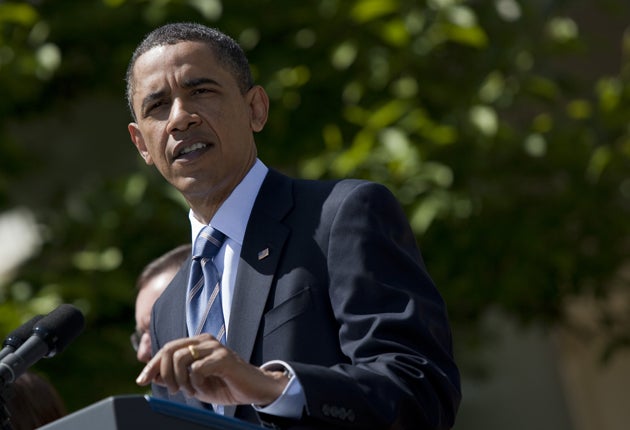Rupert Cornwell: The President moves swiftly to avoid his Katrina moment
Analysis

Your support helps us to tell the story
From reproductive rights to climate change to Big Tech, The Independent is on the ground when the story is developing. Whether it's investigating the financials of Elon Musk's pro-Trump PAC or producing our latest documentary, 'The A Word', which shines a light on the American women fighting for reproductive rights, we know how important it is to parse out the facts from the messaging.
At such a critical moment in US history, we need reporters on the ground. Your donation allows us to keep sending journalists to speak to both sides of the story.
The Independent is trusted by Americans across the entire political spectrum. And unlike many other quality news outlets, we choose not to lock Americans out of our reporting and analysis with paywalls. We believe quality journalism should be available to everyone, paid for by those who can afford it.
Your support makes all the difference.For decades, the offshore oil industry in the ecologically delicate Gulf of Mexico, accounting for a third of all US domestic oil production, has led a charmed life in terms of accidents.
Since 1995, there have been no major spills, despite a regular battering by hurricanes, including Katrina in 2005, the costliest natural disaster in US history.
That luck has now run out, with the devastating accident at the Transocean rig operated by BP.
Barring miracles, the disaster will have a devastating impact on marine life in the Gulf, on the fragile Louisiana wetlands, and perhaps on the coastlines of four other states under threat. It may also have major political implications, both for President Barack Obama and for the landmark energy and climate bill soon to be taken up by the Senate.
Fortunately for both Louisiana and himself, Mr Obama's alacrity in responding to such calamities seems rather greater than that of his predecessor.
George W Bush's botched handling of the Katrina emergency ("Brownie, you're doing a heck of a job", and all that) was the single event above all others that unravelled his presidency.
By contrast, Mr Obama won wide praise for the US response to January's devastating earthquake in Haiti. This time too he has moved swiftly, after he was told on Wednesday evening that the spill was far worse than originally thought.
The full resources of the Pentagon are being thrown into the fray, and top federal officials have been sent to the scene. It would be a surprise if Mr Obama himself did not soon follow them, to show his personal involvement in the crisis. The consequences for the energy bill could be even more important. The administration has had no choice but to suspend all plans for new drilling off the US eastern seaboard until a report on the Gulf spill is complete. But some Senators are now pressing for provisions for offshore drilling to be removed from the bill, once and for all.
This might be no bad thing if it forced the US to accelerate development of clean renewable energy and move more aggressively to reduce energy consumption. But for the next two decades at least, according to Energy Department projections, oil and other fossil fuels will continue to supply up to three-quarters of America's energy needs.
The worst thing would be to allow a quarrel over the present disaster to block progress on the climate and energy bill in its entirety.
Join our commenting forum
Join thought-provoking conversations, follow other Independent readers and see their replies
Comments